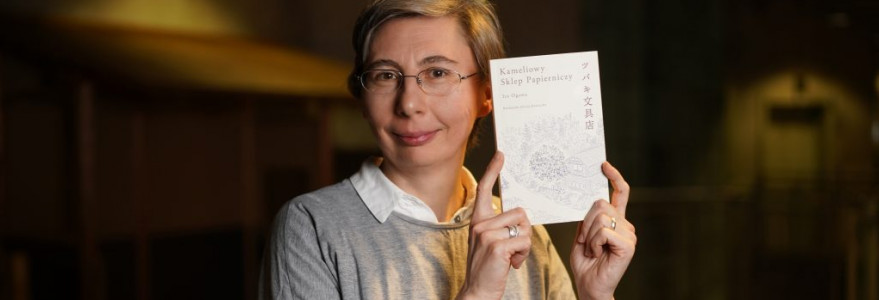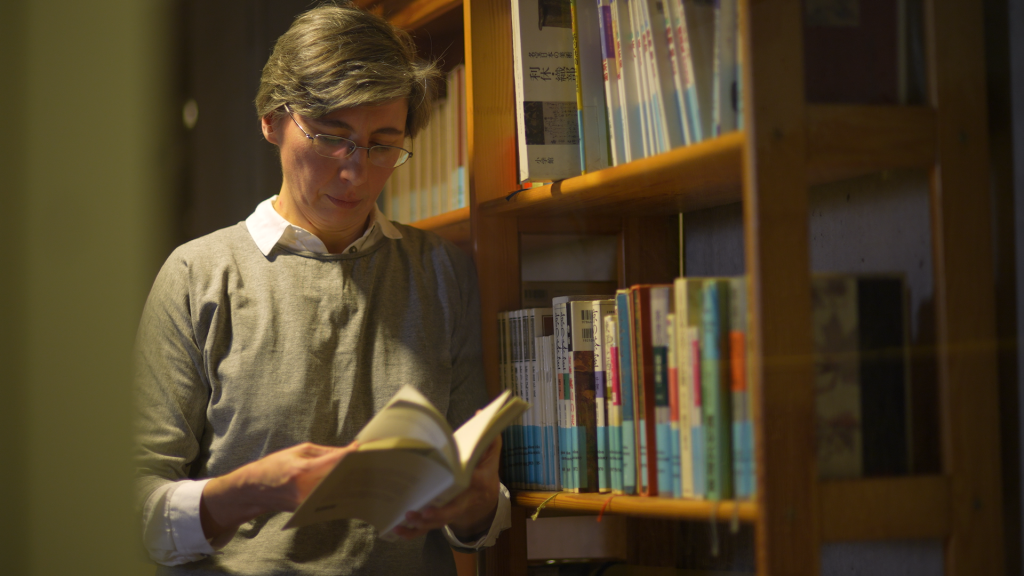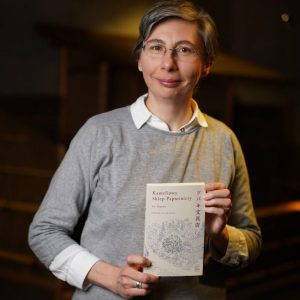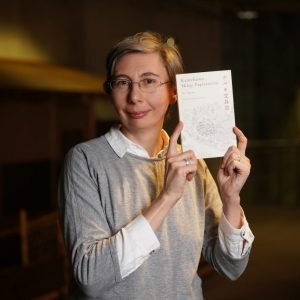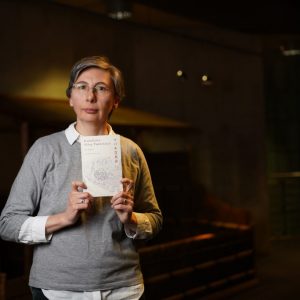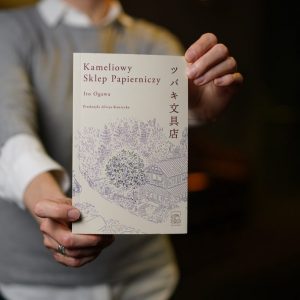“Thanks to Tsubaki Stationery Store, I became newly aware of the importance of the art of communication – face-to-face conversations, formulation of statements, and expression of thoughts on paper,” – this is how Barbara Chmielewska, section manager at the library of the UW’s Faculty of Psychology, describes the novel by Japanese writer Ito Ogawa in the next episode of the #ReadwithUW series.
Barbara Chmielewska is a graduate of Russian Studies at the University of Warsaw. She has been working in UW libraries for over fifteen years. She joined the team of the University of Warsaw Library (BUW) in 2008 and the library of the Faculty of Psychology in February 2023. She is an advocate of open science and open access publishing.
She is an enthusiast of languages – Polish as well as foreign – besides Russian and English, she speaks German, Czech and Portuguese. She is also interested in all topics that relate to water: watercraft, river history, aquatic fauna and flora, and more recently ecohydrology.
Barbara Chmielewska is the guest of the next episode in the #ReadwithUW series, presenting a novel by Japanese author Ito Ogawa.
The art of correspondence
Tsubaki Stationery Store is where the protagonist of the novel works. Hatoko, called Poppo by her friends, inherits from her grandmother not only the shop but also her new profession. In accordance with a long-standing family tradition, she is in charge of writing custom letters.
It is not easy to write the perfect letter, and it is even more difficult to do so on someone else’s behalf. Some of the letters written by Hatoko are clichéd and banal. These include thank-you notes, congratulations and condolences. However, among the orders are also those in which people tell her their biggest secrets and stories hidden for years. Poppo helps her clients to put their thoughts into the right words and give them the right form. This is how love letters, correspondence concerning the break-up of long-standing friendships or cards from heaven are created.
It turns out that everything matters in the Japanese epistolary art: the choice of the right alphabet and writing tool, weight, shade and texture of the paper, as well as the colour and density of the ink.
“From the book, we learn that ink lighter than usual should be used to write mourning letters. This is to suggest that the ink has been diluted by the tears that have flowed onto the writing stone,” Barbara Chmielewska explains.
Even the artwork on a postage stamp can carry a hidden message. “If the envelope is the face of the letter, then the stamps are the lipstick that determines what the face will look like,” the novel reads.
Life tips
The slowly unfolding plot is shown against the backdrop of the passing seasons, accompanied by appropriate religious rituals and Japanese traditions. It is a story about coming to terms with life and death as well as finding oneself.
“The novel presents the protagonist’s maturation, her slow transformation and opening up to people. There is no fast-paced action or unexpected events; it is rather an unhurried gentle story with Japan in the background,” Barbara Chmielewska explains.
While reading the book, the reader might learn many valuable tips that the grandmother has passed on to her granddaughter.
“‘In spring, eat bitter foods, in summer – vinegar, in autumn – the spicy, and in winter – the fatty.’ I have chosen this quote on purpose, because the novel contains many tasty recipes of Japanese cuisine,” Barbara Chmielewska says, adding, “It all adds up to an interesting and intriguing story about the importance of relationships, the importance of remembering your loved ones and those who have passed away, and the importance of celebrating and eating together.
Tsubaki Stationery Store (PL: Kameliowy Sklep Papierniczy) is a book that encourages us to slow down a bit and take some distance, to enjoy small pleasures, and to cherish our relationships – both close and more distant.
Tsubaki Stationery Store (PL: Kameliowy Sklep Papierniczy) by Ito Ogawa can be found at the University of Warsaw Library in free access in the literature section.
The recording with Barbara Chmielewska was made on the second level of the University of Warsaw Library, where the chashitsu Kaian – a traditional Japanese tea pavilion, donated in 2004 by Kyoei Steel to the Chair of Japanese and Korean Studies of the UW’s Faculty of Oriental Studies – is located. Designed by Teruhito Iijima, the pavilion and its surroundings were built from natural materials (wood, bamboo, paper, clay, stone), becoming a rare example of Japanese traditional architecture outside Japan.
The pavilion hosts university classes on Japanese tea culture, presentations and open-to-all chanoyu workshops.



